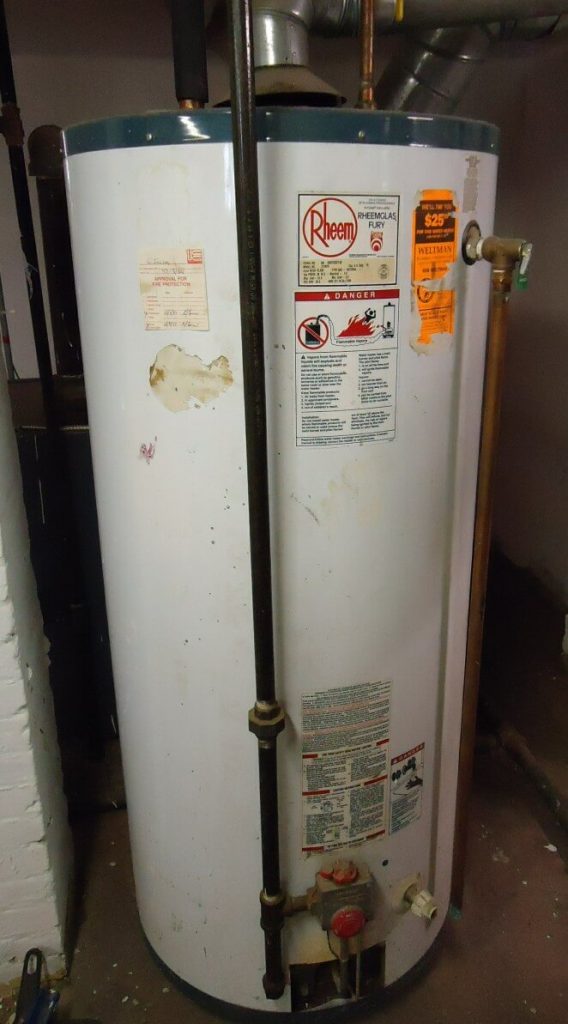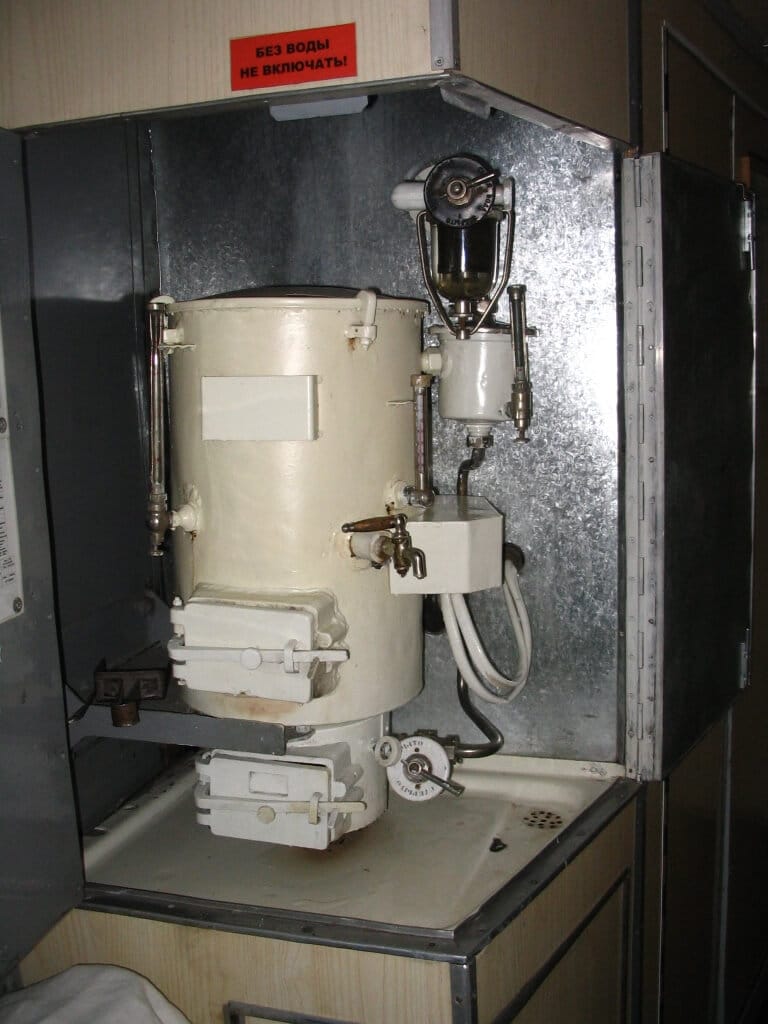- the causes of water heater leakage,
- the potential damages resulting from an unfixed leak, and
- what you can do to solve the problem as quickly as possible.
Causes of Water Heater Leaking

Corrosion
Drain Valve Too Loose
Pressure Issues
Potential Damages Associated with Water Heater Leaks

Is Your Water Heater Leaking From The Top?
This is the most common case for water to pool at the top of your water heater. If you notice your inlet valve leaking, the fix can be as easy as tightening the nut that holds the handle. If this does not resolve the issue most likely the valve is faulty and you will need to have it replaced.
Look at the inlet and outlet fittings of your water heater to see if they are the source of the leak. If they are you can attempt to tighten the pipe. If this doesn’t resolve the issue, the issue might be that the nipple is corroded and needs to be replaced.
If water is leaking from this valve it typically can be one of 2 things. The valve triggered from either excessive pressure over 150 psi or the temperature exceeded over 210 degrees Fahrenheit. If the valve is tested and appears to be leaking it should be replaced immediately.
Steps to Take Once You Diagnose a Leak
Step 1: Identify the Cause
- If you notice your water heater is dripping, it will most likely be a drain valve issue.
- If it’s spraying intensely, water pressure will be the most likely root cause of the problem.







